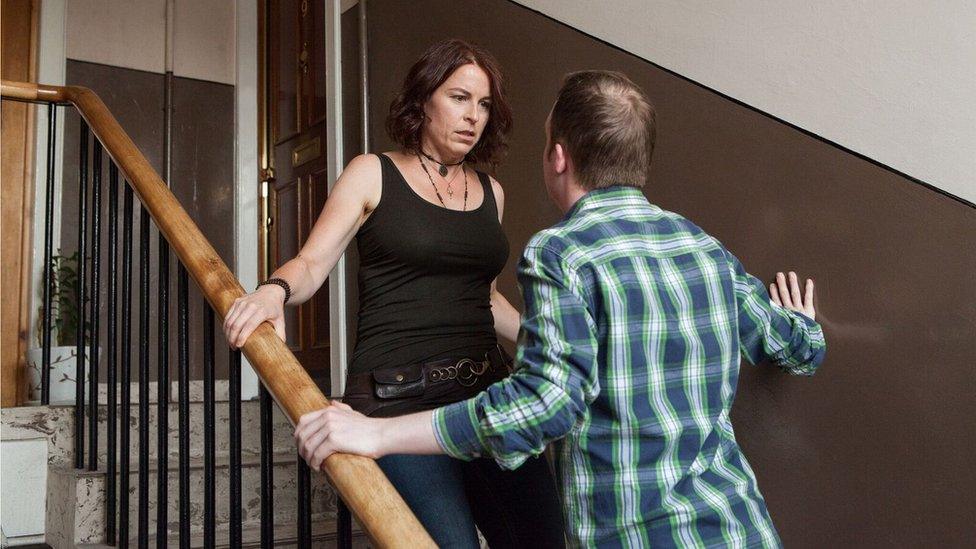Domestic abuse: Police Scotland tells 924 people about partner's past
- Published

In the past year the number of requests soared by 59% to 2,177
Almost 1,000 people have been told by police about their partner's abusive past in the last year.
The Disclosure Scheme for Domestic Abuse in Scotland gives people the right to ask if their current partner may have an abusive past.
The legislation also gives police the power to tell someone if they think they may be at risk.
New figures show that between 1 October last year and 30 September 2019, a total of 924 disclosures were made.
Since its launch four years ago police said the number of requests has increased year-on-year.
In the past year alone, the number of requests increased by 59% to 2,177.
This takes into account applications under both the Right to Ask, received from individuals, and the Power to Tell, where Police Scotland decides to make a disclosure to safeguard a person.
'Unacceptable'
Det Supt Gordon McCreadie, Police Scotland's national lead for domestic abuse, said: "Domestic abuse is unacceptable and it is vital that we collectively use every tool at our disposal to prevent abuse from happening in the first place.
"The scheme is an important tool in tackling domestic abuse and it is really encouraging that our officers are increasingly using it to protect people at risk of harm.
"Anyone who is concerned about their partner's past, or who thinks their friend or colleague may be subject to domestic abuse, can make an application under the scheme.
"Where a risk is identified a disclosure will be made to the person at risk of abuse, enabling them to make an informed choice about continuing the relationship or making themselves safe."
Lawful and necessary
It was set up in the wake of Clare's Law in England and Wales.
That scheme was named after Clare Wood, who was murdered by her ex-boyfriend in Salford, Greater Manchester, in 2009.
Police Scotland said that in the four years since the launch 5,700 requests have been received and 2,760 disclosures have been made.
The force said it has worked extensively to raise the profile of the scheme among officers and this has led to a 71% rise in applications made under the Power to Tell in the last year.
It also allows any concerned third party such as a parent, relative, neighbour or friend to make the application on a person's behalf.
Each case is considered by a multi-agency panel to determine whether disclosure is lawful, necessary and proportionate to protect the individual from their partner.
- Published1 October 2018
